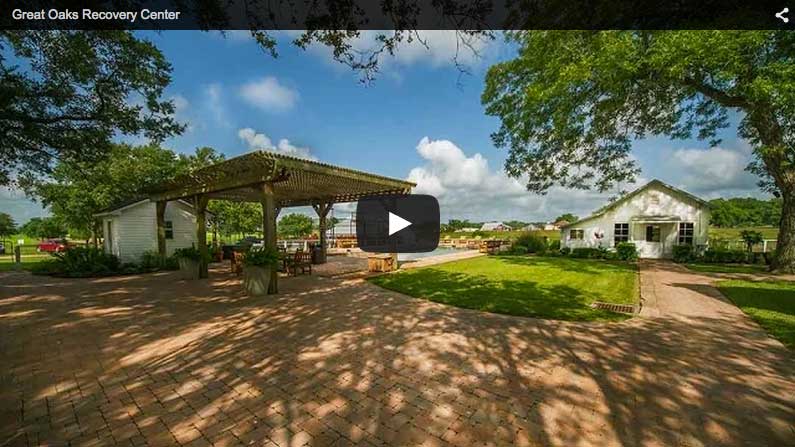Recovery is a journey, not a destination.
 A person who has struggled with addiction is not “cured” on the day they leave treatment, though they can learn to manage their symptoms. In fact, exiting treatment is a time when a lot of people find themselves at danger for relapse, which is why it’s so important to have a solid plan for discharge and aftercare.
A person who has struggled with addiction is not “cured” on the day they leave treatment, though they can learn to manage their symptoms. In fact, exiting treatment is a time when a lot of people find themselves at danger for relapse, which is why it’s so important to have a solid plan for discharge and aftercare.
Living Arrangements
One part of discharge planning involves deciding where to live. For some people, they may have been able to stay at home while receiving treatment or will be able to return home immediately, as it is a sober environment where they will have support on their recovery journey and the ability to access aftercare resources.
Other people may need more time before going home is viable. Their family may not be ready to provide a sober, supportive environment or their home may be too far from necessary aftercare services.
Some may need an entirely different housing arrangement, as they may have been homeless before coming to treatment or may have no sober supports in their home community. If a person who just stopped using returns to an environment where everyone around them is using, their chances of relapse are extremely high.
Treatment programs often have varying levels of treatment that can accommodate such needs and can help clients to identify what is most appropriate for their next stage of recovery.
Aftercare
Life after treatment looks different for everyone, but often includes some or all of the following:
- Outpatient treatment services
- Support groups (mental health or substance use oriented)
- Recovery meetings (AA/NA/Celebrate Recovery/Smart Recovery)
- Group and/or individual therapy
- Meeting with a sponsor
- Working the 12-Steps
- Reading books related to recovery
- Alumni group
- Creating a Wellness Recovery Action Plan (WRAP) or similar plan
Heading Off Relapses
Some people find that they struggle to stay on track once they leave treatment and return to their regular life. There are a number of factors that can contribute to relapse:
- Anger – While anger is not new to a person in recovery, having to deal with it without their drug of choice may be new. It is important to develop new coping skills to replace that old response.
- Stress – It is impossible to avoid, but there are ways to manage stress so that it doesn’t become overwhelming.
- Boredom – The recovering addict needs to be proactive about managing this relapse trigger. Keep a list of movies, music, hobbies, and books to enjoy. Find people to call for support and to hang out. Know what recovery meetings are happening nearby. It may also be necessary to learn new ways to socialize in recovery.
- Loneliness – Sometimes, to leave behind drugs, people also leave behind a lot of their former acquaintances who still use. If they don’t also have a strong support system of non-using family and friends, they may need reach out to members of their recovery program to find anyone who understands the struggles associated with substance abuse. Becoming more involved in a faith community can also help build vital social connections, for people who identify with a religion.
- Fatigue – Sleeplessness in recovery can be a major issue. Not getting enough rest lowers the immune system and impairs judgement, which can lead to poor decision making, including relapse.
- Peer pressure – This relapse trigger can best be managed by surrounding oneself with people who understand and support recovery and avoiding people who are not supportive of a sober lifestyle. Hanging out with using friends or visiting places where one has used in the past are risks for relapse because it’s hard to be the only one in the room who isn’t getting drunk or high.
- Falling back into old routines – Like a comfortable pair of shoes, addiction can be easy to slip back into, even once a person knows what they need to do for their recovery. Constant vigilance is required to stay on track.
- Believing addiction has been “cured” – Addiction is a chronic illness. It can be treated and managed, but it can never really be cured. People relapse after months and even years of sobriety. Staying involved in the recovery community, through AA, NA, Celebrate Recovery or other groups can help a person to stay focused on their sobriety.
- “All or nothing” thinking – People make mistakes on their recovery journeys. This is normal. This doesn’t mean it’s time to give up. When a mistake is identified, it’s probably time to look at treatment that is currently in place and how to better utilize supports.
- Loss of commitment to the recovery program – When a person starts to rearrange their sober program, uses excuses for not attending recovery meetings, or quits counseling, these may be warning signs of an impending relapse. When they least want to go is when people usually need the most support.
Relapse Happens
It is often said that relapse is part of recovery. Sometimes, in spite of everything a person does right, they still find themselves using again. This should not be looked at as a failure, but as a learning opportunity.
A person in recovery who relapses needs to be able to step back, evaluate what went wrong, and create a plan for what they will do differently in the future. They likely will need more support as they recover their sobriety and may need to consider coming back to treatment.


